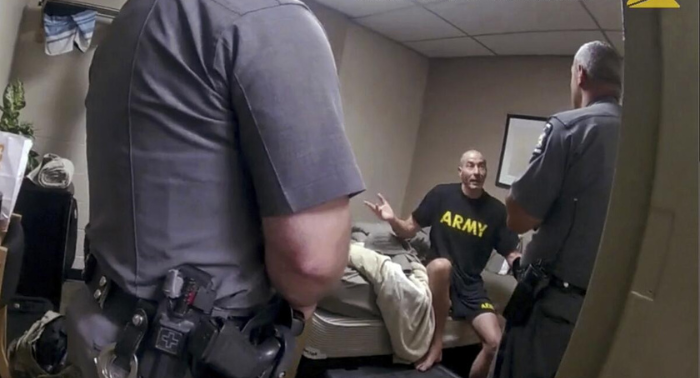An analysis of brain tissue from Robert Card, the Army reservist responsible for a mass shooting in Maine last year that left 18 people dead, reveals significant evidence of traumatic brain injuries. Researchers from Boston University’s Chronic Traumatic Encephalopathy (CTE) Center conducted the analysis, which was released by Card’s family on Wednesday.
According to Dr. Ann McKee of Boston University, the analysis showed degeneration in nerve fibers responsible for communication between different areas of the brain, as well as inflammation and injury to small blood vessels. Card had previously served as an instructor at an Army hand grenade training range, where he was likely exposed to numerous low-level blasts.
“While I cannot definitively attribute these pathological findings to Mr. Card’s behavioral changes in his final months, based on our previous research, brain injury likely played a role in his symptoms,” said McKee in a statement released by Card’s family.
In the same statement, Card’s family offered apologies to the victims, survivors, and their loved ones for the attack.
On Thursday, Army officials are set to testify before a special commission established by Democratic Gov. Janet Mills to investigate the shooting, the deadliest in Maine’s history. The commission, which includes former judges and prosecutors, is examining the events surrounding the shootings and the police response.
Prior to the shootings, both the police and the Army were alerted to Card’s deteriorating mental health. Relatives of the 40-year-old had expressed concerns about his behavior and access to firearms, while fellow reservists had also raised alarms about his conduct and significant weight loss.
Card was hospitalized in July after an altercation with a fellow reservist, and concerns about his mental state were further raised in September. Despite these warnings, Card was found dead of a self-inflicted gunshot wound following an extensive search.
The commission’s hearings have been instrumental in shedding light on the tragedy, with an interim report expected by April 1. In response to the shootings, there have been calls for changes to Maine’s gun laws, including proposals for protective custody warrants and waiting periods for gun purchases. Gun control advocates have emphasized the importance of addressing gun violence as a public health crisis.




